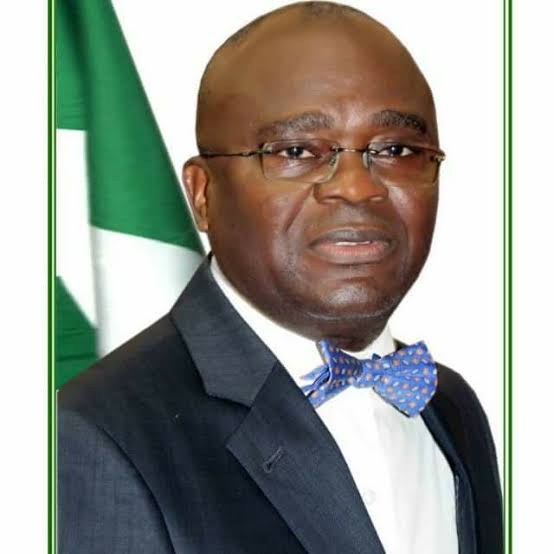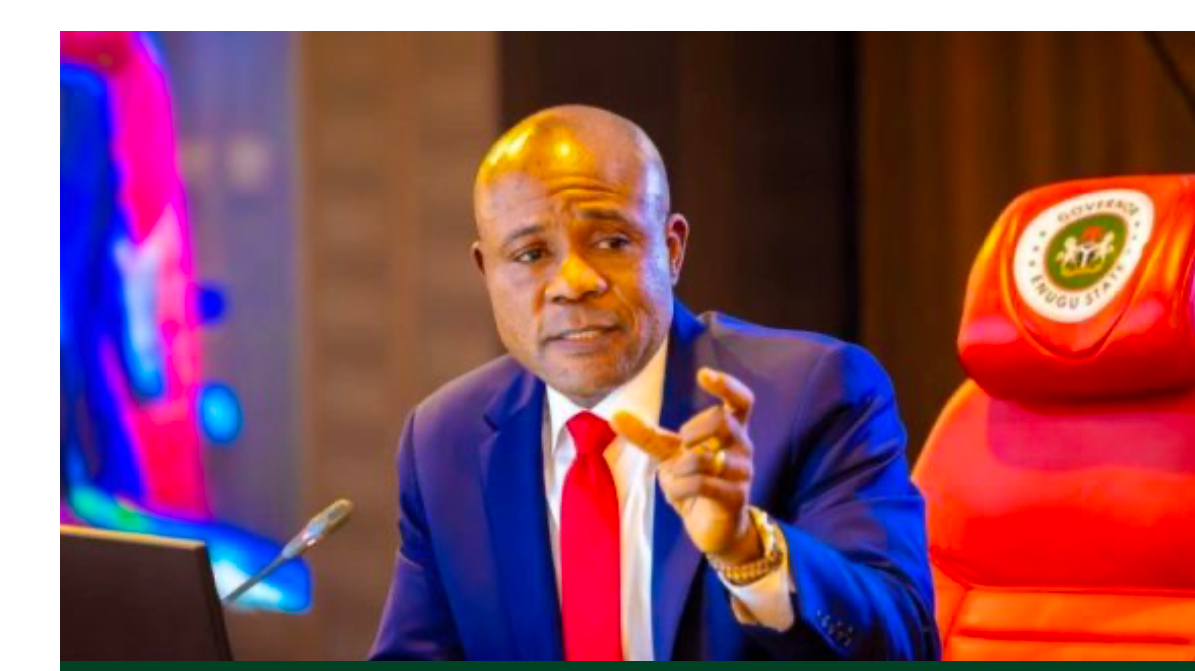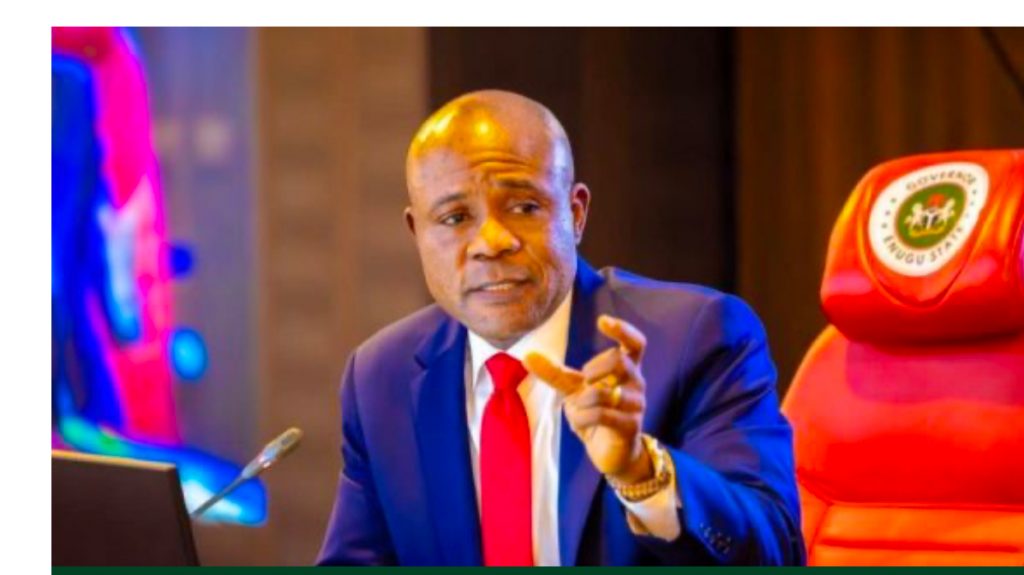news
LASPOTECH students lament lack of hostel facilities, irregular classes

 Students of the Lagos State Polytechnic (LASPOTECH), Isolo campus, have lamented how the institution’s lack of hostels on campus is affecting their finances and studies.
Students of the Lagos State Polytechnic (LASPOTECH), Isolo campus, have lamented how the institution’s lack of hostels on campus is affecting their finances and studies.
They also complained about the irregularity of lectures for months after resumption, as well as what they called irrelevant rules they have to obey.
The polytechnic, like other Lagos State-owned tertiary institutions, does not have hostels on campuses – though the government has started building an 8,000-bed hostel at the Lagos State University (LASU).
The LASPOTECH Isolo campus has both part-time and full-time students. The full time programme however has only two departments (Office Technology Management and Accounting); the rest are at the institution’s main campus in Ikorodu.
Presently, the full-time students in National Diploma [ND] 1; Higher National Diploma [HND] I and HND II classes are wrapping up their first semester examinations while ND II students are scheduled to begin their examinations on August 23.
The part- time students on the other hand, are in their second semester which is scheduled to end next month according to the institution’s academic calendar. However, they are bearing the brunt of the ongoing examinations which they lamented had affected their classes. They said their classes have not been regular despite resuming over five weeks ago.
Nevertheless they are scheduled to write their examination next month. Besides selling of text books, the part-time students said little is going on. As a result, they have been reluctant about coming to school. They said they come anytime they feel like.
“Lecturers have not been coming for classes, most of us just come to take attendance and go,” said two part-time students of Mass Communication who spoke with our correspondent on condition of anonymity.
Out of about 350 students in the class, the duo said only a few attend lectures – which they said was a disservice to students who cannot comprehend just by studying on their own.
“As for both of us, we understand better when they teach us. What helps us most is the night class tutorials we attend before the exams. We pay for those classes, at least N300. But it still better than failing and getting carry overs,” they said.
While part-time students worry about irregular classes, the full-time students are concerned about the high cost of rent in the Isolo area.
“There is no hostel inside this school – maybe because the space is not big enough – but it has forced most of us to rent lodges outside the school. And these lodges are not small money – over N100,000 depending on the size of the lodge,” said a student who simply called herself Shola.
Another student, Mariam, said with no hostels on campus, the students are dispersed all over the community making it hard to come together to study outside the campus.
The students also lamented the financial burden that followed the attendant increase in the price of foodstuffs, electricity bill and water. They said that if the school had hostels, they would not have to spend a lot on transportation.
“All these are finishing our money,” they said. Shola added: “If only this school can build hostels for students within the campus, it can help to reduce most of these financial problems.”
She is, however, optimistic that things would change once the remaining full-time departments are moved to the Ikorodu campus.
“We have hope since they are planning to move the last two full-time departments to the main campus at Ikorodu”.
For the part-time students who are not leaving Isolo campus anytime soon, they would have to contend with rules that they deem irrelevant.
The rules include: “No face cap, no shades, no ripped jeans, no sleeveless, no dreads for male students “ –which are considered as “normal clothing” by students in a campus setting.
They said that due to these new rules, their normal way of dressing changed, they now repeat clothes or buy more when not necessary.
However, Mariam and Shola do not think the rules are irrelevant. They both appreciated the school for its cleanliness and dedicated lecturers.
“The rules help to curb sexual harassment and indecent dressing. Face caps and shades can be used to conduct malpractice; and is a sign of disrespect to the school area,” they said. They both appreciated the school for its cleanliness and dedicated lecturers. Unlike the part timers, they also received lectures very often.
When asked about the lack of hostels, the Head of the institution’s Public Relations unit, Mr. Olarewaju Kuye, said: “Hostel is a government policy. But the plan to build is on for Ikorodu (campus),” he said.
Regarding the irregular lectures for part-time students, Kuye said they were yet to fully resume.
“For part-time students, they are yet to fully resume for second semester. It was not quite long they finished first semester exams,” she said.
news
Update : police tracks down mastermind of railway vandalism, recovers load of stolen Materials in Plateau, Says Opeifa


The Nigerian Railway Corporation (NRC) had a major breakthrough recently it its efforts to apprehend the vandals of its critical assets across the country.
Towards this end, the Corporation’s police Command has arrested one Musa Abdullahi, aka Major aged 32, a notorious receiver and kingpin of vandalized railway materials, in Kaduna.
The arrest was a major success recorded by the Corporation in its campaign against the vandalisation and theft of railway materials, just as it intercepted a trailer loaded with railway components In plateau State.
In Kaduna, operatives of the Nigerian Police, Railway Command, arrested the suspect around the Rigasa area.
His arrest followed intelligence reports on the vandalism of electrical installations along the Mando–Rigasa corridor on Tuesday,14th October 2025.
Investigation is ongoing, and the case will be charged to court on conclusion.
In Plateau State, operatives of the Nigeria Police, Railway Command, intercepted trailer conveying large quantities of railway materials along KM 822–823, Foromaxis, in the early hours of Tuesday, 14th October 2025.
The truck, which was abandoned by its driver who fled the scene, was successfully towed to the Jos Railway Police Station on Wednesday, 15th October 2025.
Investigation is on going to uncover and apprehend all individuals connected to the theft.
The Managing Director of the NRC, Dr. Kayode Opeifa, commended the Nigeria Police for their professionalism, intelligence-led operation, and swift action in handling both incidents.
He described the arrests and recovery as clear evidence of the renewed synergy between the Corporation and security agencies in protecting critical railway infrastructure across the country.
Dr. Opeifa reaffirmed the Corporation’s resolve to strengthen collaboration with the Nigeria Police, the Nigeria Security and Civil Defence Corps (NSCDC), and other security formations to ensure that vandals, receivers, and collaborators are brought to justice.
He emphasized that such criminal acts amount to economic sabotage, warning that the NRC Management will continue to pursue zero tolerance for vandalism through enhanced surveillance, community engagement,and intelligence sharing.
Opeifa further appealed to residents of communities hosting railway facilities to remain vigilant and promptly report any suspicious movement around rail installations.
He noted that the railway system remains a major driver of national development and urged the public to view its protection as a shared responsibility.
news
Update : TINUBU DEPARTS ABUJA FOR AQABA PROCESS MEETING IN ROME, SAYS ONANUGA


President Bola Tinubu will depart Abuja on Sunday, October 12, for Rome, the capital of Italy, to participate in the Aqaba Process Heads of State and Government Level Meeting, with special focus on the security crisis in West Africa.
The meeting, which will begin on October 14, will bring together Heads of State and Government, senior intelligence and military officials from African countries, and representatives of intergovernmental and non-governmental organisations to discuss the evolving security challenges in West Africa.
The Aqaba Process Meeting is a counter-terrorism initiative launched by King Abdullah II of Jordan in 2015. It is co–chaired by the Hashemite Kingdom of Jordan and the Italian Government.
It recognises the complex security challenges confronting West Africa, including the expansion of terrorist networks, the growing crime-terror nexus and the increasing overlap between land-based terrorism in the Sahel and the maritime piracy in the Gulf of Guinea.
At the meeting, participants will exchange assessments of the current security landscape in West Africa and foster collaboration between regional and international partners to address cross-border security challenges. Participants will also develop strategies to counter the terror threat on land and the sea.
The meeting will discuss ideas on how to coordinate efforts to combat online radicalisation and disrupt digital networks that facilitate terrorist propaganda and recruitment.
In addition to attending the plenary sessions of the Aqaba meeting, President Tinubu will hold bilateral talks with other leaders to explore ways of addressing the rising security challenges across the subregion.
The President will be accompanied by the Minister of State for Foreign Affairs, Ambassador Bianca Odumegwu–Ojukwu, the Minister of Defence, Mohammed Badaru Abubakar, the National Security Adviser, Nuhu Ribadu, the Director-General of the National Intelligence Agency (NIA), Ambassador Mohammed Mohammed, and other senior government officials.
news
2027 Election : All is set for the collapse of the PDP in Enugu As Mbah, Others Join APC

 …..Gov, lawmakers, party executives exit party enmasse
…..Gov, lawmakers, party executives exit party enmasse
……Uncertainty over Suswam’s, ex-NAFDAC boss’ defection in Benue
…….PDP kicks, says govs being intimidated, coerced to defect
……Put your house in order, we’re not architect of your woes – APC
In a manner reminiscent of the defections that occurred in Delta and Cross River states earlier in the year, Governor Peter Mbah and all elected and appointive officers of the state are set to formally defect from the PDP to the All Progressives Congress (APC) on Tuesday next week.
The newly inaugurated Enugu State APC Caretaker Committee Chairman, Dr. Ben Nwoye, confirmed the development to newsmen at the APC National Secretariat in Abuja after taking the oath of office yesterday.
He made the disclosure during a press briefing by the newly inaugurated Enugu State Caretaker Committee.
Describing Mbah’s defection as the dawn of a new political era for Enugu and the Southeast region, Nwoye said the governor’s coming into APC would be “a merger between transformation and renewed hope.”
“For the past 10 years, Enugu State has remained in opposition. But all that ends on Tuesday when Governor Peter Mbah declares for the APC. And he is not coming alone,” Nwoye said.
According to him, the defection will signal a “historic alignment” as Mbah will be joined by 260 councillors, 24 state lawmakers, National Assembly members, and the entire state executive council—an unprecedented political realignment with President Bola Ahmed Tinubu’s Renewed Hope Agenda.
“Where Enugu goes, the Southeast goes. This marks the beginning of the Southeast’s political reawakening and full integration into national politics,” Nwoye said with a tone of confidence.
Commending the Governor Mbah’s performance in his last two years in office, Nwoye, who was the founding state chairman of the party, noted that his economic and infrastructural reforms had elevated the state to one of Nigeria’s top-performing states in internally generated revenue.
He added that the synergy between Mbah’s Transformation Agenda and President Tinubu’s Renewed Hope Vision would accelerate development and economic growth across the Southeast.
APC National Chairman, Prof. Nentawe Yilwatda, who inaugurated the seven-man caretaker committee for the party in the state, had earlier hinted of moves by the APC to strengthen its foothold in the Southeast.
The APC chairman charged the new Enugu leadership to consolidate the shock defection into a “lasting political conquest”
“APC is home for all. The person who came yesterday, today or tomorrow has equal rights.
Nigerian government services
Private refinery investment Nigeria
Digital trade agenda investment
“Our goal is simple: to expand, to win, and to deliver overwhelming victory in 2027,” Yilwatda said.
APC’s Deputy National Chairman (South), Emma Eneukwu, who is from the state, said the political development in the state marked the return of the Southeast region to national relevance.
“We will no longer play second fiddle. With Enugu in APC, the Southeast has found its voice again,” he declared.
Uncertainty over Suswam’s, ex-NAFDAC boss’ defection in Benue
There were strong rumours yesterday that Suswam, Orhii who currently serves as a member of the House of Representatives representing Agatu/Apa Federal constituency, Hon. Ojema Ojotu and former Benue North East Senator, Prof. David Iornem were set to join the APC in Benue State.
This was in spite of a statement issued by the media aide to Suswam dispelling the rumour that his boss had defected from PDP to the ruling party.
Banners and signposts announcing their official defection and pre-decamping dinner adorned major roads and streets in Makurdi, the state capital, yesterday.
It is the first time Suswam would defect to another party since joining politics in 1999.
The black cat, as the former governor is widely known first won an election to represent Katsina Ala, Logo and Ukum Federal Constituency in the House Representatives on the platform of the PDP.
After eight years in the House of Representatives, he was elected the governor of Benue State for another eight years also on the platform of PDP.
His first bid to go to the Senate, however, ended in a fiasco as he lost the election. He, however, made a second bid and won election into the Senate.
He had remained in PDP even after losing his re-election bid until yesterday when the news of his defection broke.
There was jubilation from Suswam’s massive camp of supporters yesterday on hearing that the former governor had defected to APC.
In Anyiin his country home and Ayilamo settlement, there was dancing and singing throughout the day, with shouts Dom Agya as Suswam is known in his ancestry home.
At press time yesterday, he was locked in a meeting with his supporters.
Our correspondence learnt that the meeting was meant to deliberate on the date for the defection ceremony.
But the media aide to Senator Suwswam, Bede Bartholomew, yesterday denied the claims that his boss had defected to APC.
Bartholomew however admitted that Governor Hyacinth Alia two days ago extended an invitation to Suwswam and other leaders for a banquet with him at Government House Makurdi.
A press statement he signed and made available to our correspondent yesterday reads: “Moments ago, I received telephone calls from well-meaning Benuelites and leaders alerting me to trending news on Benue’s social media space purporting that the former governor of Benue State, His Excellency Senator Gabriel Torwua Suswam, is set to defect to the All Progressives Congress (APC) today and would be received by the Governor of Benue State, His Excellency Governor Hyacinth Alia, this evening at the Banquet Hall of the Benue State Government House.
“I debunk this unholy rumour with all vehemence as it doesn’t represent the current interests of Senator Gabriel Suswam or that of his supporters across the state and should be treated as a mere rumour and that’s all.
“What I know is that two days ago, the Governor of Benue State HE. Rev. Fr. Hyacinth Alia respectfully extended an invitation to Sen. Suswam, among other stakeholders, expressing his desire to attend a State Banquet slated for 10th October, 2025.
“It should be noted that as a former Governor of the State, Suswam is a stakeholder in the Benue project, thus his reason for accepting the invitation.
“There was no indication in the invitation letter that it was a political event or a decamping ceremony whatsoever.
“The former governor advises his supporters and well-wishers to disregard this rumour as it is baseless, aimless, and a lie from the deepest pit of hell.
“Suswam appreciates everyone who called in for further enquiries and concerns and wishes everyone a happy weekend ahead.
Defections: Blame no one for your woes, says APC as PDP kicks
The ruling All Progressives Congress (APC) yesterday took a swipe at the Peoples Democratic Party (PDP), accusing the opposition party of being responsible for its woes as more of its members are dumping it for the governing party.
This came on the heels of plans by the PDP governor of Enugu State, Peter Mbah, and the entire elective and appointive officers of the state to defect to APC on Tuesday.
The PDP had on Thursday blamed the wave of defections from the party on APC, accusing the ruling party of engaging in intimidation and coercion of its elected members.
National Publicity Secretary of the party, Debo Ologunagba, while reacting to reports of the planned defection of some governors elected on the platform of the party to the APC, accused the ruling party for its misfortune.
“The APC is orchestrating all of this through intimidation, through coercion, through blackmail,” he said.
But APC National Publicity Secretary, Felix Morka, waved off the PDP allegation, insisting that the opposition party was only crying over a self-inflicted problem.
Dismissing the PDP allegation, Morka said: “The PDP continues to ridicule itself by the boring, repetitive and baseless claim that APC is, somehow, intimidating or cajoling its governors and other senior members to dump their wreck of a party.
“The PDP is the sole maker of its own political predicament. The party is only harvesting well-deserved adversity from decades of political recklessness, mindless corruption, ruthless desecration of democracy, disgraceful failure of leadership, and destructive impunity that characterised its existence.”
Justifying the defection to APC, Morka argued that “the governors and members that are dumping the party in their numbers are doing so in exercise of their free democratic will, and wisely so, to mitigate against the devastating fate that Nigerians will deal the party in the upcoming 2027 elections.”
-

 news5 years ago
news5 years agoUPDATE: #ENDSARS: CCTV footage of Lekki shootings intact – Says Sanwo – Olu
-

 lifestyle5 years ago
lifestyle5 years agoFormer Miss World: Mixed reactions trail Agbani Darego’s looks
-

 health5 years ago
health5 years agoChairman Agege LG, Ganiyu Egunjobi Receives Covid-19 Vaccines
-

 lifestyle4 years ago
lifestyle4 years agoObateru: Celebrating a Quintessential PR Man at 60
-

 health5 years ago
health5 years agoUPDATE : Nigeria Records 790 new cases of COVID-19
-

 health5 years ago
health5 years agoBREAKING: Nigeria confirms 663 new cases of COVID-19
-

 entertainment9 months ago
entertainment9 months agoAshny Set for Valentine Special and new Album ‘ Femme Fatale’
-

 news5 months ago
news5 months agoBREAKING: Tinubu swears in new NNPCL Board


